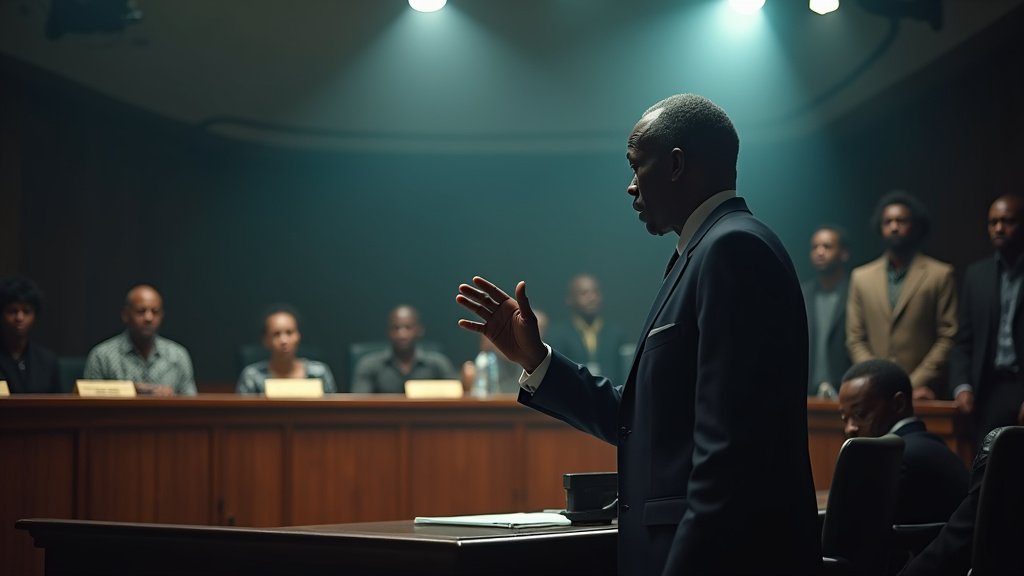Kingston, Jamaica – September 25, 2025 – A significant legal and cultural battle is unfolding in Jamaica today as a constitutional hearing is set to commence regarding the decriminalization of Obeah, a traditional spiritual practice rooted in West African heritage.
Leading the charge for reform is the Unuchi Foundation, an Africana spiritualist non-profit, which is campaigning for the repeal of the colonial-era Obeah Act. The foundation views Obeah, also known as Ọbịa, as a valuable system of knowledge and healing that has been unjustly outlawed and stigmatized. However, their efforts have met fierce opposition from a coalition of church leaders who fear that legalizing the practice would invite societal chaos and spiritual darkness.
The Case for Repeal: Heritage and Rights
The push to decriminalize Obeah is gaining momentum through a constitutional challenge filed by Professor Clinton Hutton of Mico University College. His legal action argues that the Obeah Act of 1898, a piece of legislation dating back to colonial times, violates fundamental constitutional rights, including freedom of religion, conscience, expression, and privacy. Professor Hutton contends that the law, originally enacted to suppress enslaved Africans and maintain colonial power, wrongly criminalizes African spirituality, which he argues is a legitimate heritage that deserves the same protections as other religious practices.
The Unuchi Foundation echoes this sentiment, viewing their advocacy as an act of “Knowledge Reparation” and aiming to free people to worship and live as they see fit, fostering self-knowledge and positive community participation. The foundation has advertised a virtual vigil coinciding with today’s hearing, underscoring the significance of the legal proceedings.
Church Leaders’ Vehement Opposition
On the opposing side, prominent church leaders are rallying to prevent any move towards decriminalization. Bishop Dr. Alvin Bailey, president of the Jamaica Evangelical Alliance and project director for the Jamaica Umbrella Groups of Churches, has been a vocal critic. He warns that legalizing Obeah would be a “disastrous decision for Jamaica,” unleashing “demonic forces” and leading to “destructive behaviors” and “uncontrolled individuals”.
Bishop Bailey and other church representatives gathered in Spanish Town recently to pray against the decriminalization efforts, imploring Jamaicans to guard against such plans. They draw parallels with the perceived negative impact of Voodoo in Haiti, with Bishop Rowan Edwards of the 10,000 Men March stating, “We saw what Voodoo has done to Haiti. It mash it down bad…We don’t want that in Jamaica”. Archbishop Brian Cameron of the Spiritual Christian Revivalist Council of Churches asserts that Obeah’s beliefs are contrary to Christian principles and could undermine the nation’s moral fabric. These church groups believe that individuals practicing Obeah should face arrest, not legal protection.
Historical Roots of the Obeah Act
The Obeah Act, first passed in its modern form in 1898, has a long and complex history tied to Jamaica’s colonial past. Its origins can be traced back to laws enacted in 1760 following Tacky’s Rebellion, intended to suppress uprisings among enslaved Africans. Subsequent legislation continued to criminalize Obeah, often equating it with African religious practices and symbolizing a hostility towards African connections and the religion of the poor.
While the law remains on the books, it is largely unenforced in contemporary Jamaica. The last recorded conviction for Obeah was in 1964, and arrests have been rare since the country gained independence. Despite its dormancy, the Obeah Act has been a point of contention, with some arguing that its very existence as a law criminalizing a form of cultural heritage is problematic, even if not actively prosecuted.
A Clash of Visions for Jamaica’s Future
The constitutional hearing today represents a critical juncture for Jamaica, forcing a confrontation between differing views on cultural heritage, religious freedom, and societal values. For proponents of decriminalization, it is an opportunity to shed a colonial legacy and affirm the rights of all citizens to practice their spiritual traditions without fear of legal reprisal. For the opposing church factions, it is a defense of what they perceive as the nation’s moral and spiritual integrity against practices they deem harmful and malevolent.
As the legal arguments unfold, the debate over Obeah is not merely about an old law but about Jamaica’s identity and its relationship with its past, its spiritual heritage, and its future trajectory. The news of this hearing underscores the ongoing tension between tradition, faith, and evolving legal frameworks in the island nation.

